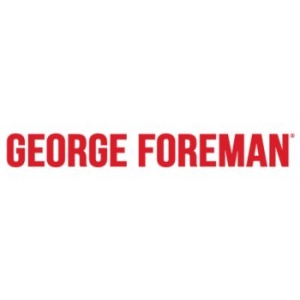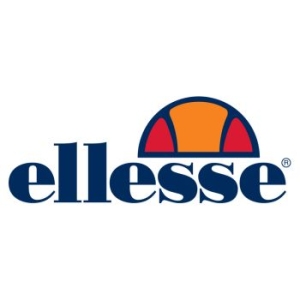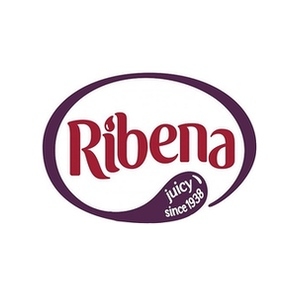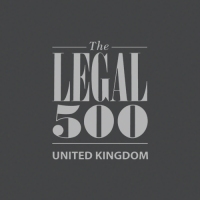Search-a-brandPowered by BRANDSMITHS
Search-a-brand assists you in researching, choosing and building a brand for your company, service or product. Try it out and search with the intended name!
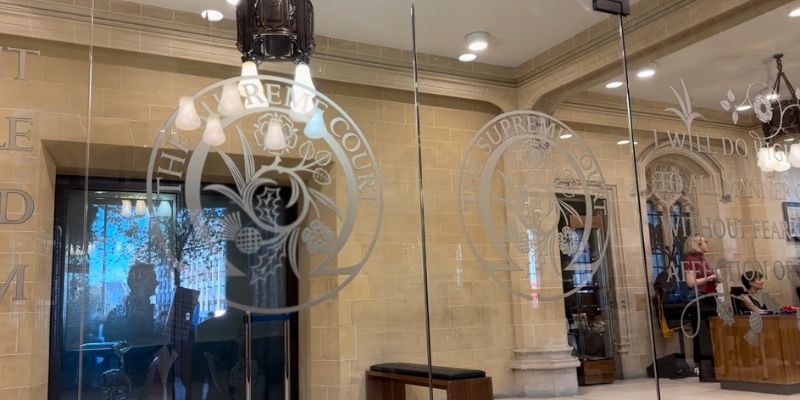
BULLSEYE! LIFESTYLE HITS THE TARGET AT SUPREME COURT
Author: Sophie-Turner--flynn
Lifestyle's success in the UK Supreme Court in its trade mark infringement claim against Amazon.
Summary
Brandsmiths’ client Lifestyle Equities has been successful in the highest court in the UK, the Supreme Court, in its trade mark infringement claim against Amazon.
This is the first time the Supreme Court have determined how territorial trade mark rights exist alongside global internet trade. It becomes the leading and highest authority on the issue.
This is the third instalment of a legal battle against Amazon, the case having first been heard in the High Court in 2021; which was then successfully appealed by Lifestyle Equities in the Court of Appeal in 2022; which has now been upheld by the highest court in the UK.
This will be the second time that Brandsmiths have appeared in the Supreme Court; the first was another case for Lifestyle Equities v Ahmed[1], which was the first time the Supreme Court considered the issue of joint liability as it relates to directors of companies. That decision is expected soon and will become the leading case on directors’ liability for intellectual property infringement.
Background to the Case
Lifestyle owns the "BEVERLY HILLS POLO CLUB" brand in most of the world, including various UK and EU marks relating to the brand.
In the US, the same brand is owned by a different entity which produces genuine branded BHPC goods but generally at a lower price point (“US BHPC Goods”). Lifestyle have never consented to the US BHPC Goods being put on the market in the UK/EU.
Complaint was made by Lifestyle over US BHPC Goods being offered for sale on Amazon websites including www.amazon.com (in the US) and www.amazon.co.uk (in the UK).
Amazon denied infringement arguing there was no use of the UK/EU marks in the relevant jurisdiction on the basis:
- The listings on the .com website were not targeted at UK/EU consumers; and
- The sales took place in the US.
The High Court Decision
The High Court dismissed Lifestyle's claims holding:
- The listings of US BHPC Goods on amazon.com were not targeted at consumers in the UK/EU. The judge said that the average consumer deliberately sought to find these items and would have known they were buying US BHPC Goods. The factors the judge took into consideration included: (i) fewer visitors and fewer purchasers of US BHPC Goods; (ii) the difficulties in shopping for example higher shipping and import costs; (iii) the currency (US Dollars) displayed on the listing page and search results; and (iv) consumer inputted details for example their address.
- The sales of US BHPC Goods to consumers in the UK/EU took place in the US. In doing so, the judge rejected Lifestyle’s argument that EU case Blomqvist v Rolex SA[1] established that sales of goods to EU consumers prior to their importation into the EU were acts of trade mark infringement. The judge said Blomqvist was limited to the finding that the Customs Regulation allowed the authorities to destroy counterfeit goods that had been sold to a consumer in the EU and there was no analysis of the seller's alleged use of the sign in the course of trade within the EU or actual interpretation of the meaning of "use in the course of trade". The judge held that title to the goods passed in the US, so purchasers were the importers into the UK and EU and they were responsible for paying import duties.
Lifestyle appealed.
The Court of Appeal Decision
Lifestyle were successful in overturning this decision, with Lord Justice Arnold providing the leading Judgment, finding:
- The judge was wrong in concluding that the listings were not targeted at UK/EU consumers. Even if they were primarily directed at US consumers, they were not restricted to them. The factors that were taken into account included: (i) the product page and search results stated "Deliver to United Kingdom" and "Ships to United Kingdom"; (ii) the “review your order” page included a purchaser located in the UK, shipping and billing address in the UK, and currency in GBP; (iii) Amazon makes the process easy for the consumer, e.g. by estimating custom fees and the delivery date; (iv) any sales or engagement are irrelevant to the assessment.
- The judge misinterpreted Blomqvist which was clear authority for the proposition that sale of goods under a sign by a foreign website to a consumer in the UK or the EU constituted use of the sign in the course of trade in the relevant territory, and that this was even so if there was no antecedent offer for sale or advertisement targeting consumers in that territory. Where title passes is irrelevant.
Amazon appealed.
The Supreme Court
The Supreme Court upheld the Court of Appeal’s decision, with Lords Briggs and Kitchin providing the leading judgment, finding:
- There was targeting to UK consumers on the .com site. Whilst the court reached the same conclusion as the Court of Appeal, it conducted its own assessment to targeting, finding: (i) the court’s “self-contained” review of the site was an erroneous approach and the site should be taken as a whole; (ii) a review in the order of the customer’s journey is the most appropriate assessment; (iii) evidence about delivery times and charges are factors relevant to the targeting assessment; and (iv) consumer inputted details should be taken into account but in view of the customer’s journey as a whole. Additionally, as to the trial judge’s approach the court found: (i) the judge was not wrong to review the website as a whole, but failed to consider in sufficient detail, stage by stage, upon the specific elements of the successive pages as the consumer would see them in their journey; (ii) just because a website is primarily targeted at one territory does not preclude that it could also be targeted at other territories; (iii) the question for the consumer is: “is this advertisement deliberately aimed at British people, among others?” The trial judge was plainly wrong to answer this in the negative, in circumstances where, for example, the pop-up box was plainly telling the consumer that they would find in the following pages those products available for shipment to the UK; (iv) it is a natural part of targeting consumers in a particular territory that the trader takes trouble to configure the website in as user-friendly way as possible for consumers in that territory, for example highlighting all the goods available for shipment to the UK, and in giving the consumer an option to convert all US dollar prices to sterling, at a current exchange rate; (v) the judge’s heavy emphasis on typically higher delivery charges and longer delivery times, by comparison with the UK website, was seriously flawed; and (vi) the subjective motivation of Lifestyle for bringing these claims is not of any relevance.
- The conclusion on targeting meant the court did not have to decide whether non-targeted sales to consumers in the UK were infringing, therefore it was unnecessary to consider the Blomqvist issue. The court expressed some relief over this, indicating uncertainty over the ambit of the Blomqvist doctrine to the current case.
Final Thoughts
The Supreme Court’s decision is especially relevant to businesses who sell their goods on online marketplaces and have consumers in several jurisdictions. The decision shifts the balance in favour of brand owners, potentially making it easier to enforce UK trade marks against misuse by online marketplaces. Online marketplaces will need to buckle down on their website configuration and ensure restrictions are in place for goods outside the relevant jurisdiction to the consumer.
The case will also no doubt be of interest to IP practitioners as it confirms the relevant factors the Court will consider in the assessment of whether an online page is targeted at a UK consumer. Whilst the Court declined to decide whether non-targeted sales are infringing, it confirmed that a targeted sale will be an infringing sale.
Whilst the court was not required to determine issues relating to Brexit (as the proceedings began before the end of IP completion day), the court stated: “UK trade mark law remains rooted in EU legal principles and the issues about the applicability of that law to internet marketing remain of prime and probably ever-increasing importance”. Following Brexit, the UK courts can in certain circumstances depart from EU law however this judgment indicates that the UK will not be departing from EU law any time soon on these issues.
About Brandsmiths
Brandsmiths is the go-to firm for the world’s leading brands. With a highly skilled team of IP lawyers, the firm specialises in all matters related to trade marks, copyright, patents, rights & designs, confidential information, and database rights.
Should you have any queries about the matters raised in this article or other trade mark issues, please contact andy@brandsmiths.co.uk and sophie@brandsmiths.co.uk or info@brandsmiths.co.uk to arrange a free consultation.
Brandsmiths is a trading name of Brandsmiths S.L. Limited which is authorised by the Solicitors Regulatory Authority, SRA No: 620298. Founding Partner: Adam Morallee
Privacy and Cookie Policy | Terms and Conditions | Complaint Procedure | Site by: Elate Global




